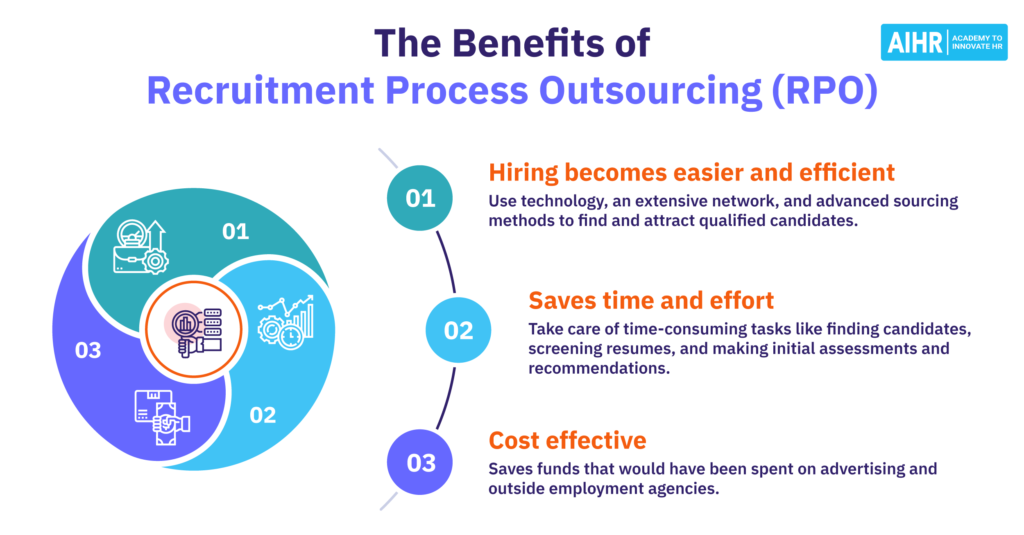
Why you need to consider Recruitment Process Outsourcing (BPO)
Recruitment Process Outsourcing: knowing the basics and its benefits
No one could become successful in business process outsourcing unless they learn about its basics first. In this section, you will know the definition of outsourcing, the reason why you may have to get into it, and the benefits inherent to the practice.
There are different advantages of outsourcing, depending on the size of your business. Thus, the benefits are differentiated according to sole proprietors, small-to-medium size companies, and large corporations.
Ten reasons why you need to outsource your business are also elaborated, as well as the business areas that are commonly outsourced today. Various types and models of outsourcing are also further examined as a primer to the more meaty insights of the succeeding sections.
Outsourcing: what is it?
When it comes to businesses these days, one has to be efficient to be successful, and that is often where outsourcing comes in. One of the deciding factors that is responsible for making a business grow to “great” from “merely good” is how one utilizes modern process management techniques. Business Process Outsourcing (BPO) is the modern way of running a successful business where you utilize all factors and ideas to benefit your business the most.
This article will tell you all about outsourcing: what it means, how it works to help your business, business areas you can outsource, types of outsourcing, and a few more tips before you take a plunge into the industry.
What is outsourcing, and how does it help your business?
You might ask, “What do you mean by outsourcing?”
RPO has been making its way into the business industry, changing processes. We can describe outsourcing as a modern practice of contracting a particular business or work process to a service provider outside the company. It can include various services depending on what your business needs.
However, outsourcing services are more about filling supplementary business processes such as accounting, payroll, data recording, telemarketing, customer support, and other tasks that are not considered part of the core business functions.
From small start-up companies to massive corporations, outsourcing’s explanation is that it can provide plenty of benefits and advantages, especially when it comes to getting ahead of the competitions in the industry.
We can also define job outsourcing as a business strategy to help cut process costs and spending while simultaneously growing the business and increasing its profits. Because of that, there is a rapid growth in the RPO industry.
But how does it really help businesses not just to strive but also gain success in their respective fields and niche?
To explain outsourcing, you need to understand the two basic types of outsourced services – the front office and back office works.
The business’ front office services are all about contracting customers and services that involves it such as tech support and marketing. Back office services, on the other hand, pertains to the internal processes such as billing and purchasing. While these services work differently, outsourcing functions as a process that can combine unlike services, making them work together instead of working independently.
Each of these services, when not kept in tight reins, can cause a huge drain in both the company’s resources and budget. Any cost-cutting method or strategy is always helpful, and outsourcing is well on its way in that case. BPO allows businesses to fulfil their processes and obligations to both their employees and customers while keeping a tight control of their overhead costs at the same time.
BPO also has a significant potential of freeing up employees’ valuable time within the company from doing time-consuming everyday tasks, giving more of that time to creating better strategies for business growth.
The basic point of outsourcing is to bring in external specialists and knowledge to take over the business functions that would otherwise crowd the employees’ task lists or those that are not performed well because of the lack of employee expertise.
With this understanding on how outsourcing can be integrated in a business structure, there are a number of significant advantages of using this approach on various kinds of businesses.
Planning up ahead: why do you need to outsource?
One of the most obvious benefits of an outsourcing process is to reduce business costs and expenditures. It gives a company the means to keep their overheads on a tight rein while also growing the business at the same time.
RPO doesn’t only provide advantages in terms of core products and services either. It also helps optimize the business’ complimentary areas, as well as the knowledge of the new and emerging markets and trends to get ahead of industry competitors.
